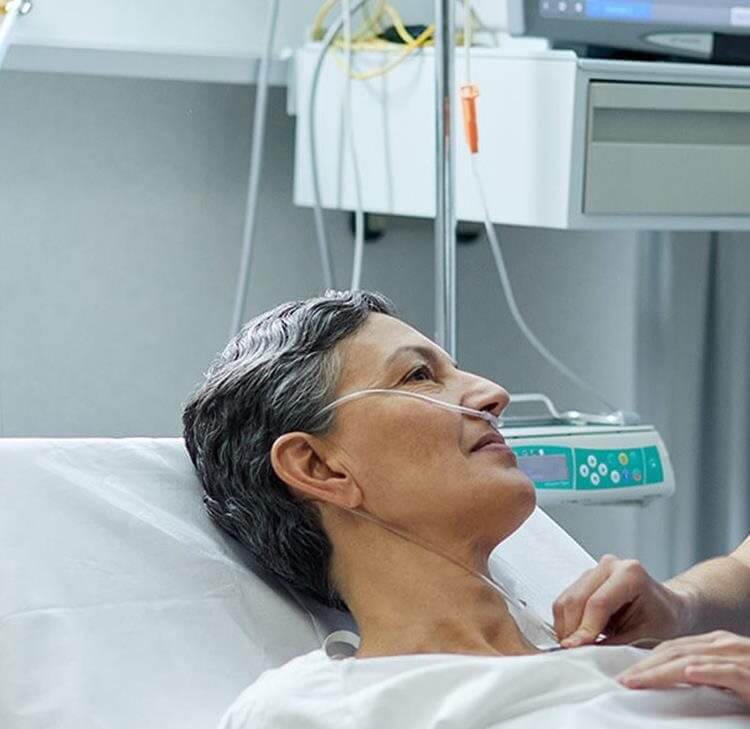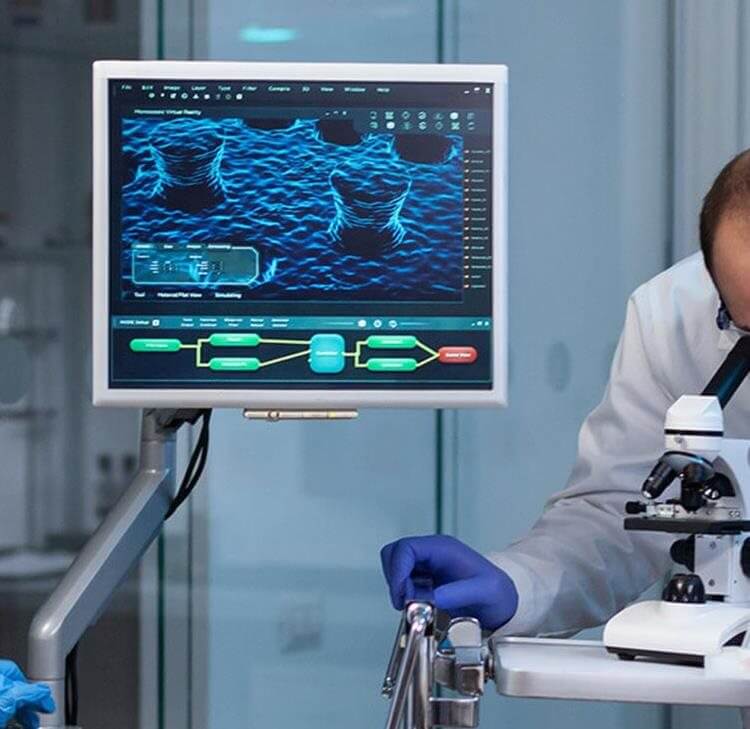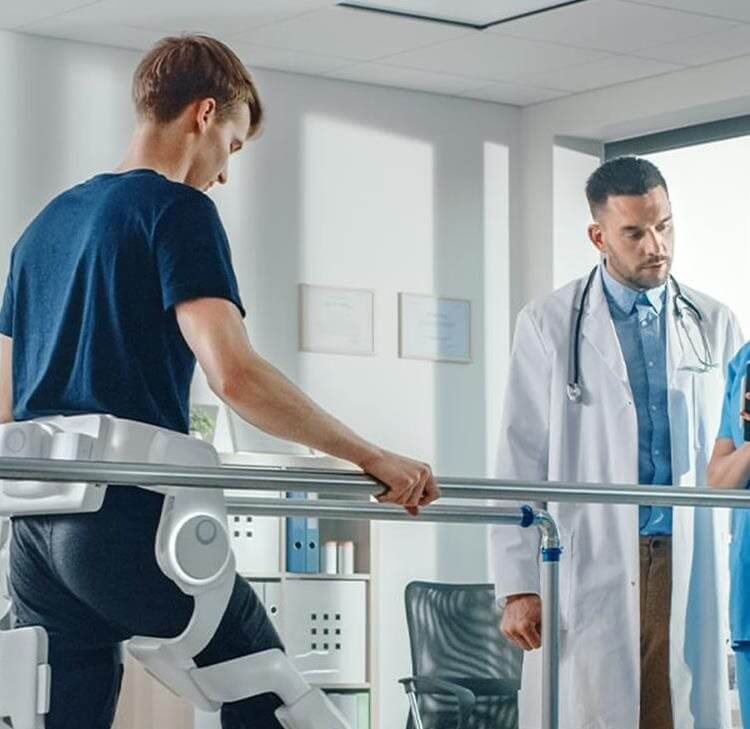Shared Insights: Inquests: recovery from the Covid-19 pandemic
In this Shared Insights session we discussed how different Coroners are approaching recovery from the pandemic. The session was chaired by Nicola Evans, Consultant, Browne Jacobson.
We were delighted to be joined by a panel of Coroners to answer questions from NHS Organisations as we plan for the increased court activity that recovery will bring:
- Mr Zak Golombeck, Area Coroner for Manchester City
- Dr Robert Hunter, Senior Coroner for Derby and Derbyshire
- Mr Gordon Clow, Assistant Coroner for Nottingham and Nottinghamshire
The Shared Insights were:
Summary of the Chief Coroner’s Guidance No 39 “Recovery from the Covid-19 Pandemic”
In this guidance:
- The Chief Coroner acknowledges that every Coroner’s area is likely to have a substantial number of inquest hearings that have had to be put on hold because of the pandemic.
- He notes that, following the Prime Minister’s announcement of a gradual lifting of restrictions, “The judicial system is therefore in a period of recovery. What is clear is that the process of returning to ‘business as normal’ will take some considerable time and will require careful planning.”
- The Guidance is clear that as a general principle the coroner service in England and Wales should now be moving towards routinely conducting hearings again.
- However, the Chief Coroner recognises that each Coroner Area is different and states clearly the Chief Coroner cannot lay down prescriptive rules about how recovery should be managed in each area.
Mr Gordon Clow spoke from a Nottinghamshire perspective and shared his experience of how Nottingham and surrounding areas have responded to the challenges posed by the Pandemic.
- The Coroner’s Courts in Nottinghamshire were early adopters of remote hearings.
- There is a small minority of cases where a remote hearing is not appropriate but in most cases remote participation has not diminished the quality of the evidence. The Court has been able to hold complex, lengthy inquest hearings remotely with 45-50 attendees attending any one time on Microsoft Teams.
- There is a backlog of jury cases due to difficulties in holding these in person during the national lockdowns. Jury cases are scheduled to resume in Nottinghamshire in the Autumn and the backlog is expected to be cleared by the end of 2022.
- Going forwards, the Senior Coroner expects to continue utilising remote hearings for clinical witnesses, as this is a more efficient use of clinical time. In Nottinghamshire, remote participation will be the norm and it is anticipated clinical witnesses will typically give their evidence in that way.
- Pre-Inquest Review Hearings and witness lists: approaches differ between Coroners even within the same jurisdiction, some will schedule witness slots, others are less keen. It is difficult to predict how long witness questioning will last. However, Coroners are aware of the pressures on the NHS in terms of staffing and Trusts are encouraged to liaise with the Court about availability.
How can NHS organisations plan/work with the Coroner?
- Use the Medical Examiner and work with them effectively to identify those cases that can be disposed of at an early stage without a full inquest hearing.
- If families are concerned about particular issues, engage with families and be creative, use PALS or bereavement services. That can help narrow issues and again sometimes avoids unnecessary Coroner’s inquests.
- Position statements are also helpful (see further below).
Dr Robert Hunter spoke of some of the challenges faced in Derby and Derbyshire and the plan for recovery for the jurisdiction.
- There are four Coroner’s Courts across the two offices in Derby and Chesterfield.
- In 2020, just under 700 inquests were concluded in Derby and Derbyshire. Lots were documentary. The rest were hybrid, with some participants in Court and some on Microsoft Teams. Some inquests were conducted fully on Teams.
- Jury Inquests were paused during the pandemic due to logistical difficulties and managing the risk posed by Covid-19.
- There is a considerable backlog of complex cases in Derbyshire as a result of the pandemic.
- In Derbyshire, jury cases will be listed from September 2021 onwards. By January 2022, the plan is for all 4 courts to be running simultaneously. It is estimated that it will take 18 months to clear the backlog.
- Remote and hybrid hearings are expected to continue in the future but it is unlikely that complex medical inquests will be remote in Derbyshire. Dr Hunter anticipates that most medical inquests will be by way of hybrid hearings with clinicians called to give evidence in court as well as remotely.
- Coroners are aware of the significant pressures faced by Trusts during this time, and the pressures on clinicians to maintain continuity of service. They are keen to work with Trusts to facilitate this where possible but recognise that when inquests get going again this is going to place additional pressure on staff.
- PIRHs will be held remotely. Part of the agenda at the PIRH will be to consider the best way for each witness to give their evidence (i.e. remotely or in person) and Coroners will hear submissions on this from Interested Persons.
How can NHS organisations plan/work with the Coroner?
- The regulations stipulate that the Coroner should conclude the inquest within 6 months of notification of death. If Coroners are to succeed in reducing the backlog and meet that timescale there has to be quicker turnaround time by NHS organisations in producing statements and reports. Dr Hunter is aware this is difficult given the pressure NHS staff are under.
- If reports/statements are as comprehensive as possible the particular witness may not need to attend the inquest. This is another aspect for Trusts to think about – especially in-house legal teams. Addressing the issues in a detailed report at the outset can sometimes result in needing to call a lot fewer witnesses to give oral evidence.
- Dr Hunter expressed sympathy for NHS staff for whom there is no respite. It is important to establish a good working relationship between the Trust/Trust’s legal department and the Coroner’s office. Give and take on both sides is essential.
Dr Hunter finished by saying that NHS organisations in Derbyshire should be preparing for a significant increase in court activity from September onwards, when he anticipates the resumption of jury inquests and a build up to all four courts running simultaneously to clear through the backlog of complex cases.
Mr Zak Golombeck spoke about plans for recovery for Manchester City Coroner’s Area:
- In Manchester City, all in-person hearings were suspended at the start of the pandemic until September 2020. The majority of hearings since September 2020 have been conducted by Microsoft Teams, except where there are difficulties for the family in attending remotely.
- Mr Golombeck highlighted the importance of access to justice and allowing families to attend in-person in circumstances where otherwise their right to access to justice might be compromised.
- Jury hearings resumed in the last few months, for those cases only the jurors are present in court and everyone else participates remotely.
- There is a small backlog of complex cases.
- The Coroner’s Officers now ask families if they have concerns about the healthcare provided (taking into account the facts of the case) in order to narrow the issues and the witness list in advance of the hearing. Going forwards, there is likely to be more frequent use of Rule 23. Families and all interested persons should be aware that a Rule 23 inquest is still an inquest and still allows if necessary, for submissions to be made on the Conclusion. Giving that explanation to families and hospital Trusts has allowed a lot more use of Rule 23 to conclude inquests.
- Remote Pre-Inquest Review Hearings are likely to be the norm in future.
- Moving forward a majority of inquest hearings will be done via Teams but certain inquests will need to be done in person or by a hybrid with some participants in court and some participating remotely. Mr Golombeck’s experience dealing with more complex cases involving hospital or healthcare clinicians by video link is that they can go well, as long as witnesses are all fully prepared for inquest.
In the subsequent discussion, a number of issues were explored.
Thoughts on remote hearings
- Some clinicians have expressed that it can be more challenging to build rapport with the family and express their condolences in a way that feels sincere and meaningful over video conference.
- Clinicians have expressed concern that remote hearings feel more intrusive for families, because the hearing takes place in their homes.
- Some families have fed back that their loved ones ‘missed out’ on a formal inquest hearing in court. Coroners have found that liaising with the families about the practicalities of remote hearings has helped mitigate this.
- A minority of families are likely to want in-person hearings because of a preference for the formality of the court.
What about Jurisdictions that are reluctant to hold remote hearings?
- Trusts should be proactive in making submissions that a witnesses should participate remotely. However, each Coroner has judicial independence and so the approach will vary between different Coroners’ Areas.
Delays to SI reports due to the pandemic
- Due to the pandemic, there is a backlog of SI Reports.
- SI Reports are not produced for the benefit of the inquest, however they are helpful for Coroners in terms of highlighting areas for improvement.
- SI Reports often do not address causation. In cases where the SI identifies sub-optimal care, the Trust should consider submitting a Position Statement addressing causation. This would usually be a signed statement with a statement of truth by the author or one of the authors of the internal investigation or a lead consultant independent of the care. However, in some cases it comes from the Chief Executive on behalf of the Trust. A statement would usually set out that this is a statement discrete to the issue of causation and set out the Trust’s position on causation.
- Reminder - make the Coroner aware if a Trust has admitted liability and/or settled a civil claim out of court.
Coroners’ top tips:
- If the technology is poor it will not help your local Coroner feel positive about remote hearings. Give some thought to that.
- All jurisdictions have found one problem with remote attendance is discipline. People get a bit too relaxed.
- Witness preparation has always been essential. Bear in mind in that the witness is going to be more prone to distractions.
- It is easy to give a good impression in Court when you are suited and booted but all three Coroners reported seeing witnesses remotely who are multi-tasking or chewing food or gum, using novelty mugs etc. So be conscious of the professional impression you and your witnesses are giving and be absolutely sure you cannot be overheard.
- Consider your lighting; if there is a light or window behind you it can be difficult for others to see your face.
- It is difficult to strike up an emotional connection with the family but look professional. Always look professional. Dress appropriately. It is very easy to appear more relaxed from your home or office, but remember it is an inquest and even though it is remote, families pick up on this.
- Even when you are not giving evidence if you are on camera every facial expression is picked up and seen by everyone, including the family. Be very careful with this and be aware that your face can give away what you are thinking. Be careful of body language.
- Put simply, you are still in court. You are still appearing as a witness in court and therefore you should appear as if you are in court.
- Preparation of witnesses is key e.g. if they have carried out surgery and there is an issue over the pre-op and operation note, make sure they have the relevant document(s) to hand.
- Finally, mainly to lawyers rather than clinicians, as you are unlikely to be all together as you would be in Court, if you need time, ask for it. It is better to have those moments with your witness than to simply proceed without it when you are attending virtually. If you need time ask and the likelihood is the Coroner will completely understand as they would do if you were in court.
Following a previous Shared Insights session we produced a checklist for remote inquests which you can access here.
You may also be interested in watching our Mock Inquest film and guidance for clinicians on giving evidence remotely at a Coroner's inquest.
Witnesses may also find it useful to watch NHS Resolution’s films Giving evidence at inquest: a well prepared witness and How to prepare for an inquest, and also to read NHS Resolution’s leaflet entitled Inquests: Guide for Health Providers.
Speaker

Nicola Evans
Partner
Shared Insights
Our monthly forum connecting health and care leaders and professionals to discuss challenges and share solutions.
Contacts

Damian Whitlam
Partner
damian.whitlam@brownejacobson.com
+44 (0)330 045 2332

Nicola Evans
Partner
Nicola.Evans@brownejacobson.com
+44 (0)330 045 2962






![Contractual liability for all inclusive treatment: Bartolomucci v Circle Health Group Limited [2025]](/getattachment/95f9533b-f99c-4fcc-b8d5-3f93904b8242/shutterstock_1265400856.jpg?variant=HeroImageTabletVariantDefinition)

































